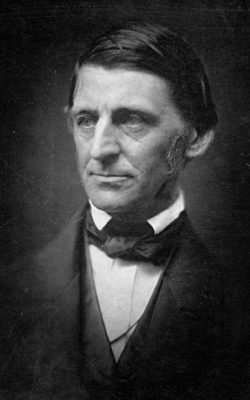
I know that when seen near, and in detail, slavery is disheartening. But nature is not so helpless but it can rid itself at last of every wrong. An Eastern poet, in describing the world God made pure in the beginning, said, "that God had made justice so dear to the heart of nature, that, if any injustice lurked anywhere under the sky, the blue vault would shrivel to snakeskin and cast it out by spasms." But the spasms of nature are centuries and ages and will tax the faith of short-lived men. Slowly slowly the avenger comes, but comes surely. The proverbs of the nations affirm these delays, but affirm the arrival. They say, " God may consent, but not forever."The delay of the Divine Justice, -- this was the meaning and soul of the Greek Tragedy, -- this was the soul of their religion.
Ralph Waldo Emerson (May 25, 1803 – April 27, 1882) was an American essayist, lecturer, and poet, who led the Transcendentalist movement of the mid-19th century. He was seen as a champion of individualism and a prescient critic of the countervailing pressures of society, and he disseminated his thoughts through dozens of published essays and more than 1,500 public lectures across the United States.
Emerson gradually moved away from the religious and social beliefs of his contemporaries, formulating and expressing the philosophy of Transcendentalism in his 1836 essay, Nature. Following this ground-breaking work, he gave a speech entitled “The American Scholar” in 1837, which Oliver Wendell Holmes, Sr. considered to be America’s “Intellectual Declaration of Independence”. (source: Wikipedia)
Originally published on The Minot Voice: June 9, 2015